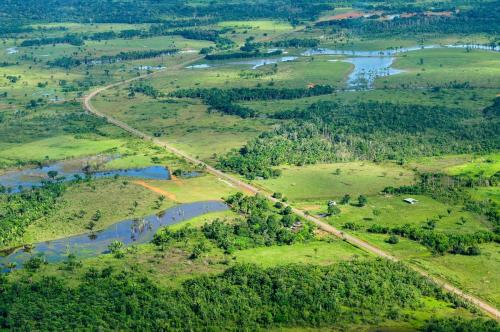
https://www.business-humanrights.org/en/latest-news/brazil-illegal-minin...
The massive surge in mining activity from 2010 to 2020 raised new concerns about the impact on the Amazon rainforest, where the race for gold is fueling deforestation and leaving rivers polluted with mercury.
The findings come from the organization Mapbiomas, a collaborative platform that analyzes satellite images with artificial intelligence to track the destruction of the world’s biggest rainforest, which has accelerated under Brazil’s far-right President Jair Bolsonaro.
The study found total mine surface area on indigenous reservations — where all mining is illegal — expanded by 495 percent in a decade.
On protected “conservation units,” the total area with illegal mines expanded by 301 percent.
The study also found the total area covered by mines, both legal and illegal, is nearly six times bigger today than in 1985 in Brazil.
Of that area, 72.5 percent is in the Amazon, a vital resource in the race to curb climate change.
[...]
Most of the illegal mining on indigenous lands is on the Kayapo and Munduruku people’s reservations, in the northern state of Para.
Bolsonaro has pushed to open protected forest land in Brazil to agribusiness and mining.
His government has presided over a surge in deforestation since he took office in 2019.
In the 12 months through July, a total of 8,712 square kilometers (3,364 square miles) of forest cover — an area nearly the size of Puerto Rico — was destroyed in the Brazilian Amazon, according to official figures.
[...]










Add new comment